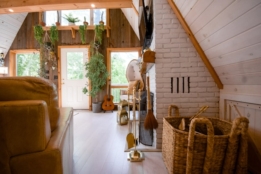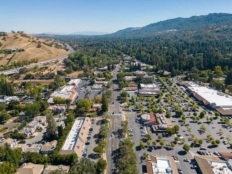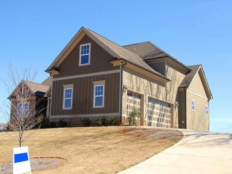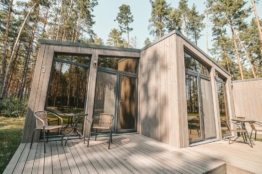Table of content
KEY TAKEWAYS
- The changes to ADU laws in California from 2023 make the construction and use of Accessory Dwelling Units in the state easier and more flexible.
- Changes to permitting rules, building restrictions, and more have come through in the hopes of making home ownership more accessible in California.
- Changes include relaxed height restrictions, improved definition for front setback rules, and changes to the 60-day rule for ADUs.
- These are changes that have been called for by citizens for a long time, and they will make a big difference to the California housing industry.
- We are a leading real estate agency in Contra Costa County and can help you buy and sell with detailed advice on the new ADU laws.
California’s ADU Law Changes For 2024: What’s New?
The new ADU laws for California in 2023 aim to make it easier and more accessible to install an Accessory Dwelling Unit on a property. Here are the basic updates:
- Relaxed height restrictions: ADUs can now be built higher than 16 feet, up to a maximum of 25 feet.
- Changes to the 60-day rule: There will now be greater transparency about the 60-day rule.
- Better-defined front setback: Under the new rules, if an 800 square foot ADU encroaches on the front setback, this is no longer a basis for denying an ADU application.
These will be welcome changes for many in the state. The 60-day rule was a particular bone of contention, as permitting offices had been frequently denying applications after 60 days with no communication. Now, they must provide a detailed explanation and recommendations to remedy the issues.
It will be important to get an in-depth understanding of the existing ADU rules, as well as these recent changes, to understand the intricacies of ADUs in California from 2023. Read on for more in-depth explanation and analysis.

What Actually Are ADU Laws In California Exactly?
ADU laws in California are regulations and legislation governing the construction and use of Accessory Dwelling Units. Commonly labeled ‘granny flats’, these buildings had long been available only as rentals in California. They come in all shapes and sizes – they could be a converted garage, a small home in the backyard or, as often seen in the Contra Costa housing market, an unused portion of the main house.
The existing laws around these constructions had long been criticized for being overly restrictive and unclear. Demand for reform in the legislation has led to the signing into law of Assembly Bills 976, 1033, and 2221 to change the ADU landscape in the Golden State.
Now, residents all around California have more freedom regarding what they can do with these properties. Instead of merely renting them out, owners are now given the freedom to sell them, and the rules around how they are constructed have been loosened and made more transparent. The new California ADU laws of 2023 are a welcome change for existing homeowners and prospective buyers looking to enter the California housing market.
Specific Assembly Bills Impacting ADU Laws In 2024
AB 976 permanently extends the ability of property owners to construct affordable rental ADUs. These provisions had been in place as of 2020, but were due to expire in 2025. The new California ADU law has now made this a permanent provision, and new ADUs can even be built on the same property as existing rentals.
In a more significant development, the signing into law of AB 1033 drastically changes California’s ADU laws as of 2023. Under the new legislation, ADUs can be built and sold as condominiums, with the hope of providing more freedoms for property owners and making home ownership a more accessible prospect for many. The new constructions must be approved through all the proper channels, and they will be subject to a separate Contra Costa property tax (or property tax for other California counties).
This is a leap forward in the ADU landscape in California, as these properties had only been available as rentals before. It is hoped that this move will help supplement the income of retirees and offer young families affordable starter homes.
How Ab 2221 Alters California’s ADU Regulations
In 2023, AB 2221 streamlined California ADU law, facilitating easier construction, especially in unused commercial spaces. Previously, developers faced limitations, unable to include ADUs in plans for proposed multifamily buildings. The law’s enactment allows builders to seamlessly propose and construct ADUs in new multifamily housing plans, eliminating the need for post-completion adjustments.
The bill also brings some technical changes that reduce arbitrary decisions blocking ABUs. Previously, there were problematic terms like:
- Front setbacks
- Permitting agency
These were often abused as reasons to block ADU construction, but front setbacks are no longer a reason to preclude construction. Moreover, permitting agencies must now return detailed comments on proposed ADUs within 60 days and make suggestions for improvements to be granted permission.
This new legislation combines with the regulations laid out in AB 68, AB 881, and SB 13 to create a robust and comprehensive framework for the designing, permitting, construction, and use of ADUs in California.

In-Depth Look At ADU Features And Restrictions For 2024
When it comes to size limits in ADU law for California from 2023, the guidance is generous but a little confusing. Let’s break it down for you:
- JADU: 500 sq ft max.
- ADU: Must permit 800 sq ft regardless of other requirements.
- 1-BR ADU: 850 sq ft max if in compliance with local rules.
- 2-3 BR ADU: 1000 sq ft max if in compliance.
- Absolute max: 1200 sq ft, subject to local rules.
- Attached ADU: Limited to 50% of the main home’s square footage.
- No limit: Converting accessory structures like barns or garages.
In addition to all this, there are new minimum height limits of 16 feet for detached ADUs, or 18 feet if the lot is located within a half-mile of a major transit stop. The limit is 25 feet for attached ADUs, based on zone height or that of the main house (whichever is lower).
Previously, a 800 sq ft ADU encroaching on the front setback could lead to application denial, but that restriction is now lifted. Cities can’t withhold demolition permits if an ADU permit is issued during construction.
ADU Design Specifics: JADU Bathrooms And Fire Sprinklers
In a junior ADU, also known as a JADU, homeowners are no longer required to include a bathroom in an attached JADU. This 2023 change to ADU laws in California applies as long as the bathroom in the primary residence is accessible to the JADU, making it easier to add this type of residence onto a property.
Senate Bill 9 has updated requirements relating to fire sprinklers. Under the previous legislation, homeowners were required to install fire sprinklers in their primary residence upon building an ADU. This mandatory requirement has now been removed as of 2023, making it simpler to build and sell an ADU property in Contra Costa.
New ADU Laws In Specific Areas Of California
These new rules apply to Contra Costa County, where we operate. We help clients buy and sell homes in cities around the county, offering a unique service with our comprehensive team of real estate professionals, and we can advise on how the new ADU laws in California, 2023 will apply to you. If you are looking to buy or sell in the Contra Costa housing market, you will need a top real estate agent to assist.
Remember that the specifics of the new ADU regulations can vary by county or city. What is true in San Diego may not be true in Los Angeles, so it is important to do your research and seek expert advice to make informed decisions. We are available to offer guidance and support, and our team and professional network are a rich resource for you to tap into.
Understanding Owner-Occupancy And Rental Aspects Of The New ADU Laws In Ca
The changes to California ADU laws in 2023 make permanent the existing prohibition on local government’s ability to require owner-occupancy on a parcel containing an ADU. This increases flexibility for property owners who wish to construct an ADU for any purpose.
If you have an unpermitted ADU and wish to rent it out, you risk fines, insurance problems, and potential lawsuits from tenants. With the relaxing of ADU laws, you may be able to get your existing ADU approved from 2024, but you will need to ensure it complies with the regulations.
These issues have been common barriers for people seeking ADU permits, which is a contributing factor to the problem of unpermitted ADUs throughout the state. Local government has recognized the strong market for building ADUs, so the changes to ADU law in California have come into force in 2023 to help make the entire process easier.
Looking Ahead: Anticipating 2025 ADU Laws
With the 2023 California ADU laws removing deadlines on regulations that were due to expire in 2025, it looks likely that the current status is set to continue. The new legislation opens the market up substantially, so it’s important to educate yourself on what can and cannot be done. We can help with this, providing detailed guidance on whether or not to buy a home in California based on yoru unique circumstances and goals.
Whilst we don’t predict any more major changes in 2025, it’s important to keep a finger on the pulse of local and statewide regulations to ensure you remain fully compliant.

Recent Modifications In Existing ADU Laws
We mentioned the 60-day rule earlier in this post. The changes to ADU law in California, 2023, essentially make these more transparent. Permitting offices have been required to approve or deny ADU permits within 60 days since 2020, but many simply issued a denial as soon as the 60 day limit was reached. As of 2024, they must provide a detailed list of reasons for a denial, including descriptions of how to make improvements.
Another recent modification is SB 897, which eliminates the restriction on homeowners building an ADU if unpermitted work is discovered on the property. It also:
- Prevents cities from blocking a permitted ADU construction by denying a demolition permit.
- Removes the requirement for fire sprinklers in the primary dwelling when building an attached ADU.
- Enables a JADU to be built without its own bathroom, as long as the primary residence’s bathroom is accessible to the JADU.
With these changes to ADU laws in California from 2023, it is set to be easier and more versatile to construct and use accessory dwelling units in the Golden State. It is hoped that this will address the problem of increasing unpermitted ADUs and provide new opportunities for homeowners to generate income and young families to get a foot on the housing ladder in California. If you are looking to buy or sell a property in Richmond, Walnut Creek, or anywhere else in Contra Costa, come to us for guidance and we will help make it happen.
Frequently Asked Questions
What Are The Main Changes In ADU Laws For 2024?
The main changes are a more transparent 60-day rule, the relaxing of height restrictions, and more clarity on rules around front setbacks.
How Do New Assembly Bills Affect ADU Construction?
Essentially, the new assembly bills make ADU construction and usage easier and more versatile. Bills like AB 976, 1033, and 2221 create a revolutionary framework for ADUs that are sure to have a big impact on the housing industry.


































































